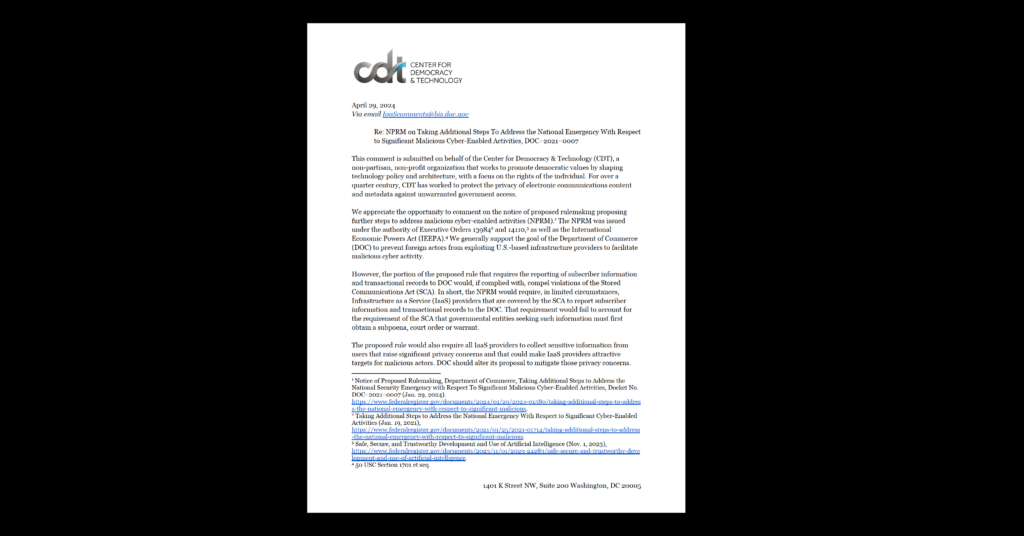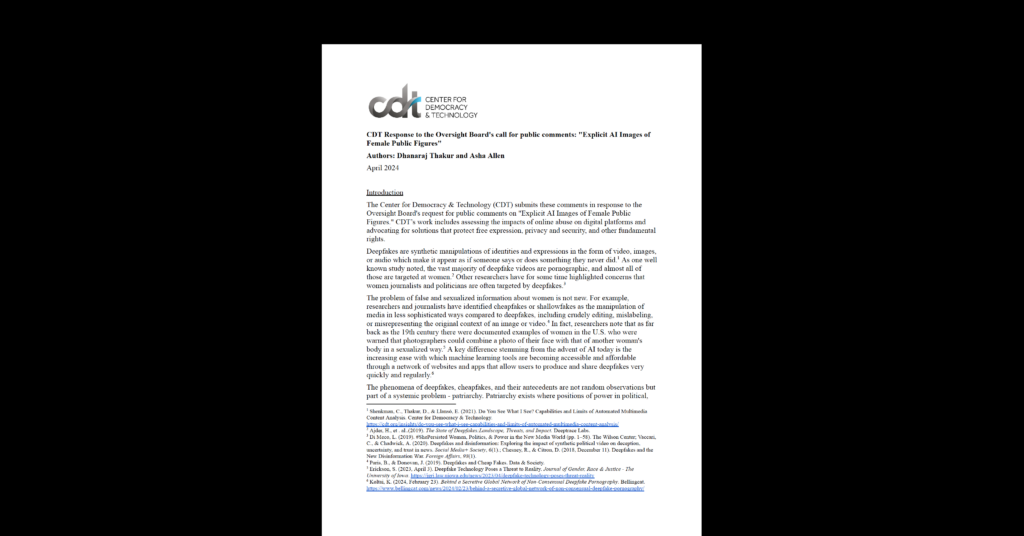Cybersecurity & Standards, Free Expression, Government Surveillance, Privacy & Data
AG Barr Repackages Time-Worn Encryption Arguments
In a speech today at Fordham University, Attorney General Barr launched another broadside at communications security by calling for compelled law enforcement access to the plain text of communications encrypted end-to-end. The Center for Democracy & Technology (CDT) issued the following statement:
“Attorney General Barr has done little more than repeat the time-worn arguments against communications security that have been coming from the FBI. In one breath, he recognizes the importance of encryption to protecting us against hackers and bad guys, and in the next, proposes undermining encryption to facilitate law enforcement access. Nowhere does he acknowledge the exploitation of unencrypted metadata to solve crimes, or the success of third-party contractors in exploiting even the most sophisticated encryption available in consumer devices,” said Greg Nojeim, Senior Counsel and Director of CDT’s Freedom, Security & Technology Project.
The Attorney General complained that service providers, device manufacturers, and app developers are deploying encryption that can only be decrypted by the end user and not by law enforcement. But that is the core function of end-to-end encryption.
“Attorney General Barr also fails to recognize that modern encryption protects both the confidentiality of communications as well as their integrity. Integrity of communications is essential for everything from receiving a trusted software update to communicating lab results. Implementation of his demand for law enforcement access would necessarily undermine consumer trust,” Nojeim added.
The Attorney General also argued that while encryption protects people from harm in the digital world, it makes them more vulnerable to physical harm. This is a false dichotomy. “The Attorney General is ignoring the many ways encryption not only protects against cyber-harm, but also against physical harm. End-to-end encryption is essential for the physical security of dissidents in repressive regimes, and for journalists who report about them,” added CDT Senior Technologist Hannah Quay-de la Vallee.


